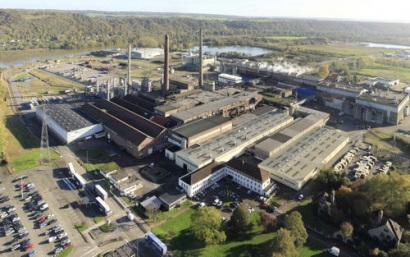
The process uses micro-organisms, working in the absence of oxygen, and creates biogas that’s converted into sustainable energy by the mill’s partner IDEX. This is then used to provide green electricity to homes and businesses throughout the Normandy region.
The expansion is expected to boost the total biogas production of the mill from 26,000 MWh to 39,000 MWh annually – delivering potential savings of up to 2,600 tonnes of CO2 per year – equivalent to taking over 600 small cars off the road every year.
As well as reducing CO2 emissions, biogas is a greener alternative as it is more circular than other gas fuels due to its biological make up. Investing in water treatment will also reduce the mill’s biological sludge, reducing the number of vehicle movements needed to remove this from the site.
DS Smith’s climate targets commit to at least a 40% reduction in CO2 emissions per ton of production by 2030, compared to 2019 levels, and to reach Net Zero emissions by 2050, as part of its Now & Next Sustainability Strategy,
Bruno Šteh, Cluster Energy Coordinator for DS Smith, said, “We are very proud to have increased our green energy credentials with the expansion of our wastewater treatment facilities at Rouen Paper Mill. We are not only treating the wastewater onsite but extracting a naturally produced resource which is converted into green electricity. This investment was a key driver in our overall strategy to reduce the impact of our operations here in France and contribute to providing green power to the region.”
The Rouen Paper Mill was founded in 1928 and was the first paper mill in France to produce lightweight recycled fluting, which is used to make corrugated paper. It also produces light medium, medium, and dual-use papers.

